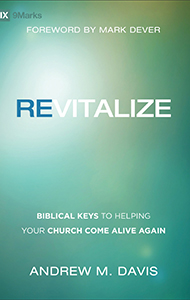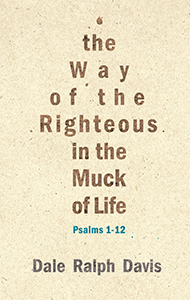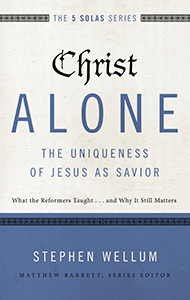 |
 |
 |
 |
Revitalize: Biblical Keys to Helping Your Church Come Alive Again by Andrew M. Davis (Baker Books 2017, $15.99)
Review by S. Craig Sanders
Church revitalization is a trending topic in American evangelicalism and it’s no surprise why — thousands of churches close their doors each year and the number of unchurched adults in the United States continues to escalate. But the challenge of revitalization has persisted since Christ’s message to the seven churches in Revelation 2-3, writes SBTS alumnus Andrew M. Davis in his new book Revitalize.
Writing from his experience pastoring the historic First Baptist Church of Durham for nearly 20 years, Davis casts a vision for transforming congregations grounded in Christ’s ownership of the church and the proclamation of the Word in expository preaching. Davis also offers advice for handling opposition and raising up leaders in pastoral ministry, sharing personal stories and practical tips. His careful and systematic approach to this topic, in addition to his track record in ministry, make this book a must-read for pastors and seminarians.
Exalting Jesus in Hebrews by R. Albert Mohler Jr. (Holman Reference 2017, $14.99)
Review By S. Craig Sanders
In the first volume of Holman’s Christ-Centered Exposition series to feature the CSB translation, SBTS President R. Albert Mohler Jr. provides a clear analysis of the “Christocentric” book of Hebrews in a format ideal for sermon preparation and small group study.
“In order to understand this New Testament letter we must become familiar with the history, themes, and theology of the Old Testament,” Mohler writes. “Hebrews will guide us along this journey, but it is important that we keep our Old Testaments open as we read this epistle.”
Each of the 32 lessons features the main idea of the passage, breaking down the structure into smaller sections with easy-to-read exposition, concluding with “Reflect & Discuss” questions. The book is adapted from Mohler’s two-year teaching series at Highview Baptist Church in Louisville and offers an affordable tool to aid the expository teacher.
The Way of the Righteous in the Muck of Life: Psalms 1-12 by
Dale Ralph Davis (Christian Focus 2016, $10.99)
Review by Annie Corser
In The Way of the Righteous in the Muck of Life, author and theologian Dale Ralph Davis provides a rich biblical commentary on Psalms 1-12. Davis exposits each verse to walk the reader through Psalms with his understanding of the biblical languages and stories from personal experience. His application of the text allows the reader to experience delight in God’s Word.
This book is an excellent supplement resource for Christians who desire to dive deeper into Psalms. Davis provides a big picture experience in tracking biblical themes while also analyzing smaller sections of Scripture. Davis argues that Psalm 1 deals with first things. He urges readers to “make sure you are among the congregation of the righteous.” Throughout the rest of the Psalms, Davis explores how righteousness is opposed to wickedness. This process leads to an application of relying on God and delighting in his Word.
Christ Alone: The Uniqueness of Jesus as Savior by Stephen J. Wellum (Zondervan 2017, $24.99)
Review by S. Craig Sanders
Zondervan’s Five Solas series continues to deliver powerful demonstrations of Reformation theology with its fourth book, SBTS theology professor Stephen J. Wellum’s Christ Alone. Each book stands on its own as a gem of systematic and historical theology, but together offer a treasury of wisdom for understanding our heritage and bracing for the doctrinal challenges in our contemporary setting.
Wellum’s book, building off his magisterial God the Son Incarnate (review below), offers a more broad and accessible treatment of Christ’s incarnation and atonement, followed by historical treatment of how the Reformers contended for these doctrines.
“Solus Christus stands at the center of the other four solas, connecting them into a coherent theological system by which the Reformers declared the glory of God,” Wellum writes. “For this reason, we need to attend closely to what the Reformers taught about our Lord Jesus Christ.”
Rather than providing a full-orbed treatment of Reformation Christology, Wellum instead focuses on two central foundations: the exclusive identity of Christ and his sufficient work. In the first part, Wellum explores the storyline of Scripture and how the covenantal development testifies to who Jesus is, in addition to Christ’s self-witness to his identity. He then examines how Christ’s divine-human identity necessitates his exclusivity as redeemer, which includes a focus on Christ’s threefold office as prophet-priest-king and a defense of penal substitutionary atonement.
“From beginning to end, this book confesses with the Reformers that Jesus Christ bears the exclusive identity of God the Son incarnate and has accomplished an all-sufficient work to fulfill God’s eternal plans and establish God’s eternal kingdom on earth,” Wellum writes.
With pluralistic secularism threatening the doctrine of Christ alone, Wellum’s insightful book can provide the blueprint for withstanding the storm of cultural opposition.




